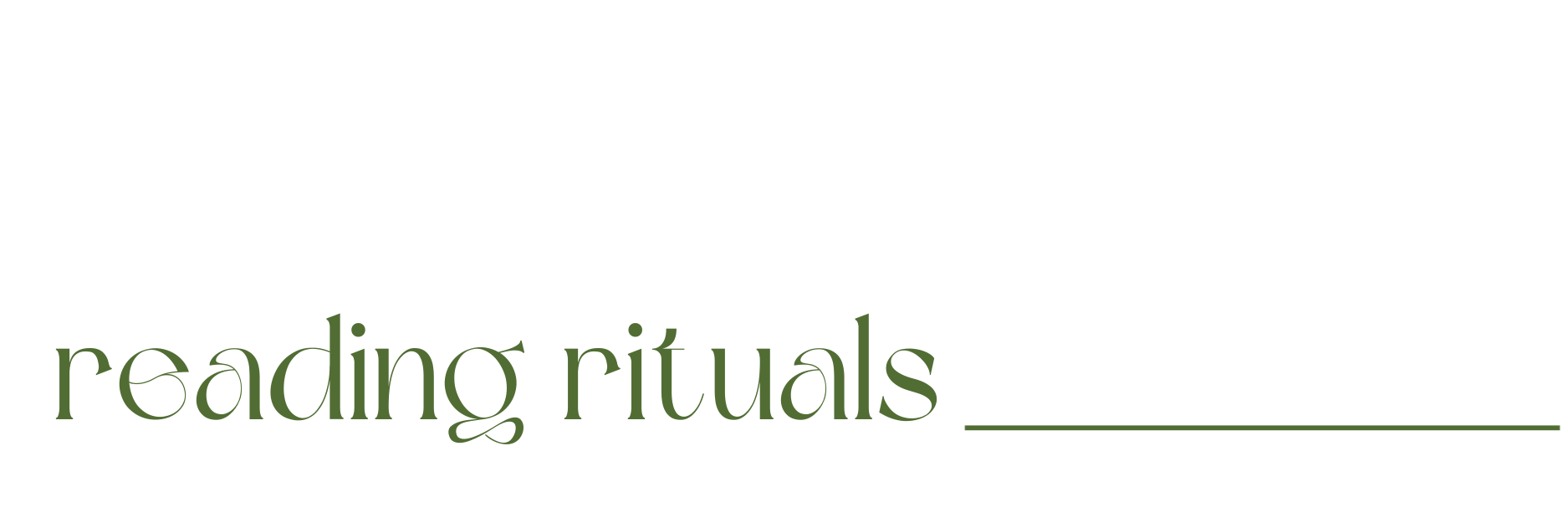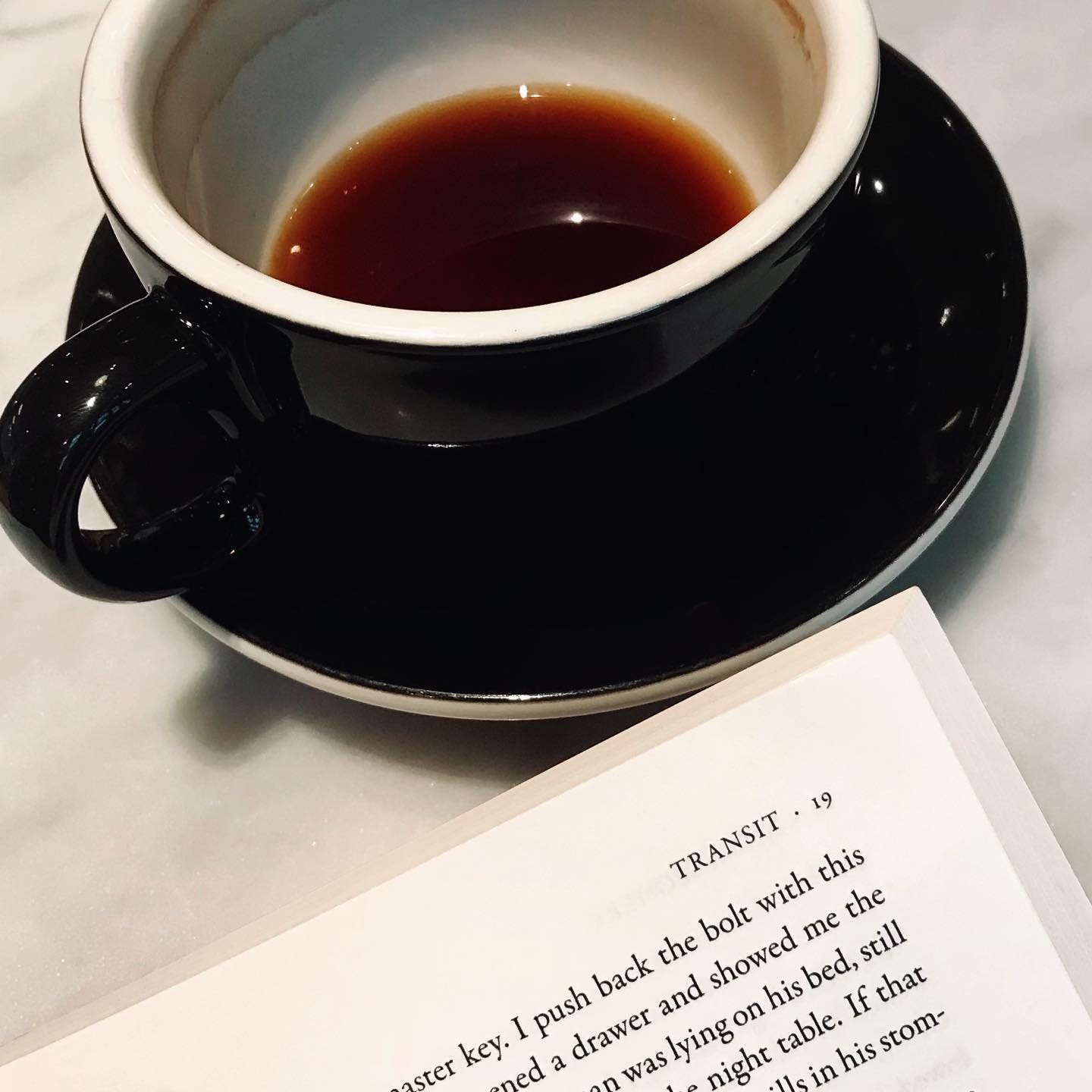Close Reader: An interview with Juliana
On medieval history, the limits of language, and reading for study vs. for fun
In this series, “Close Readers,” I’m asking some of my favorite Substack essayists, Bookstagrammers, and writers to share their reading and writing processes and habits, and tell us about the literary ideas they’re spending time with these days.
Today’s interview is with Juliana, a cultural historian and medieval scholar, who I met on Bookstagram and have had the chance to get to know as we’ve both continued to read, post about our academic interests, and start publishing here on Substack.
After you read today’s interview, check out Juliana’s amazing essays here on Substack:
Let’s start with an introduction! What’s your name and where are you currently living? Tell us a bit about you.
I’m Juliana and I’m currently living in NYC (in the ancestral homeland of the Lenape people).
What are you reading right now?
I’ve been trying to keep October in the spooky vibes, and my current read is Weird Women: Classic Supernatural Fiction by Groundbreaking Female Writers: 1852-1923, edited by Lisa Morton and Leslie S. Klinger.
Alongside that, I’ve been reading (or, I should say, neglecting to read), The Complete Shorter Fiction of Virginia Woolf (ed. Susan Dick), for more than a few weeks now, and my current bedtime read is Victoria Chang’s Obit.
What are some of your favorite books or genres?
I feel like I’m re-discovering myself as a reader, and it’s been a fun ride! I’ve read quite a few collections of short stories in the past couple of years and I really like the format. One that comes to mind often and that I don’t see mentioned frequently is Anna Seghers’ The Dead Girls’ Class Trip (translated by Margot Bettauer Dembo). My favorite author of all time is Brazilian writer Machado de Assis and Pushkin Press has recently published a collection of his short stories translated by Daniel Hahn titled The Looking-Glass (disclosure: this volume currently sits on my shelf but I haven’t read it yet; I have read all the short stories in the original and I can attest at least to it being a very good selection).
Lately, I feel like I have preferred books that explore the line between the real and the surreal or unreal, or the one between the probable and the possible. I’m not sure what looks like concretely—I mostly go by vibes.
What ideas are you studying or exploring right now?
I have more and more thought about the role that language and its limits have in our lives. It is quite far from what my PhD research focused on, and maybe one of the reasons why it has been so rewarding to just sit in my corner and think about and feel it more than search for a good, argumentative formulation.
But some of the things that interested me as a PhD candidate are still with me, because they are in many ways broader than that research: the role of material things in the definition of our selves, the construction of memory (and its failings) through generations and the role storytelling plays in it.
What is your reading method? Tell us about your reading routine, habits, quirks, anything you'd like to share. (If you'd like to include a photo of your favorite reading place(s), please do!)
I try to read every morning while sipping my (first) cup of coffee and this has become a precious moment in my daily routine. After reading compulsively and full of guilt dozens of academic monographs every month (and, honestly, probably not absorbing that much from each besides whatever notes I scribbled about them), it has been amazing to just claim this little moment with a book of my choice (even when I’m not loving it).
What does closely reading mean to you? Do you consider yourself a close reader?
While I have dabbled in more traditional close reading for my dissertation (with mixed results), it is not something I do often. I think the one time I did it intentionally outside of the context of the dissertation was for a French literature seminar I took during courseworks, and I would not say I did it particularly well because, as a historian, I was certainly reading several of the texts with a different mindset.
To me, today, closely reading means more of a way to allow yourself to be taken in by the text whenever that happens, to go over the same paragraph, sentence, or even fragment over and over again as you unpack it—rationally, emotionally, you name it.
Do you prefer to read hardbacks, paperbacks, or digital copies? Why?
PAPERBACKS, always.
I think hardbacks are beautiful to look at but I struggle a lot with simply holding them (and I can never decide if I should read them with or without their dusk-jackets). Either way, I am a physical copy type of reader. I think this is in no small part related to the fact that my brain has come to associate reading on screens with work of some type. But it’s also just nice to be able to hold an object and flip through its pages. I love a good haptic experience with a book, even with deckle edges.
What’s your annotation process like, while you read? Do you write in your books? Why or why not?
If I’m reading a book for study purposes, I love being able to scribble in the margins and underline things. I think my tactile preferences also extend to studying, and I feel that handwritten notes make me connect in a different way to what I read.
But my reading for fun tends to be note-less. To me, having a clear separation between what I read “for study” (paying attention to argumentative structures and use of evidence, references made etc) and what I read “for fun” has been a very meaningful way of rediscovering some joy in reading (I spent over 2 years unable to read anything but dissertation-related books and articles and that was the opposite of fun).
Speaking of writing, what is your current writing project?
I am currently putting all my writing energy into my substack posts. My idea behind it has been to rekindle my relationship with authorship in a way that is a little less tortuous than the one I had with my dissertation (and to, hopefully, rediscover myself as someone who enjoys writing for the sake of writing). I’m currently sharing one newsletter every week, but I might change this so I can give myself more time and give my ideas some room to breathe before I share them.
I would also love to write one short story by the end of the year. I currently have no plans for it other than a very vague image of where it would take place.
Describe your writing process. Where do you start? How do you get focused?
I like to have my table cleared from everything but my computer and the occasional notebook or book I’m drawing things from. A bottle of water is a must-have.
Most importantly, I need music. It has to be instrumental, but the mood varies depending on the writing and on how much coffee I have had vs. how much coffee I still need. A lot of the last rump of my dissertation was written to the sound of Art Blakey’s Moanin’ (to the point where its eight tracks were among the nine tracks I most listened to in 2021). If I don’t know what I need, musically speaking, I’ll just play lo-fi girl’s playlist in the meantime.
Describe your revision process. How do you go back into a piece of writing to revise?
To be very honest, I often roll revision and editing in one go. It’s probably not best practice and I’m sure there’s someone out there having a mild heart attack at reading this. But recently I have tried to spend as little time with something I considered “done.” I’ll sometimes consult my partner if I’m struggling with something, but otherwise my writing finds its way into public life with little intervention. I think it’s still part of the process of disassociating writing and academia, as I spent an ungodly amount of hours re-reading my dissertation chapters and hating most of it.
Back then, I did ask friends to help with the revision and editing, but only on occasion—there are very few people I would impose my academic writing on. Though I will say this: helping friends edit and revise their stuff is one of my favorite activities in the world.
What is the relationship between reading and writing, to you? Where are the overlaps? Where are the important distinctions?
To me, one goes with the other. Or, at least, I’ve come to realize that I only enjoy doing any writing if I’m enjoying in any way what I’m reading. Not that the themes and topics of both need to overlap, but the intellectual sparkles of reading certainly kindle the intellectual sparkles of writing. I noticed a distinct change in the quality of my writing for my dissertation and, above all, my relationship to it, when I found my way back into reading for fun. Reading to me is a way to break away from whatever intellectual routine I’m in, a way to keep me on my toes, if you will.
What’s your current coffee or tea order?
I’m a black coffee drinker. I like the occasional cappuccino or coffee with creamer, but more often than not I just have it black. And now that the temperatures are finally dropping, let’s make it a hot drink!
Anything else you’d like to share about writing, reading, or annotating?
This one goes out to the ones who, like me, see all that aesthetically pleasing annotating and cannot do the same: it’s totally fine. We all read and engage with our books and stories in different ways, and none of them are intrinsically better than others—as long as you find the one that works for you, for that book, for that occasion!
Lastly, for those who want to get to know you better, where can they find your work? Share your @ for anyone who wants to follow along!
Other than Substack, you can find me on Instagram (@medieval.juliana), where I often post random photos of books, the occasional video game session, coffee cups, and museums (when they let me take pics).
Thank you so much for sharing all about your reading and writing processes, Juliana!
For more interviews and weekly close readings, subscribe to Closely Reading now.













Love this interview and love Juliana's newsletter! ❤
Juliana and her fountain pens need another Substack post: tools for writing! :D
Enjoying these interviews very much, Haley.